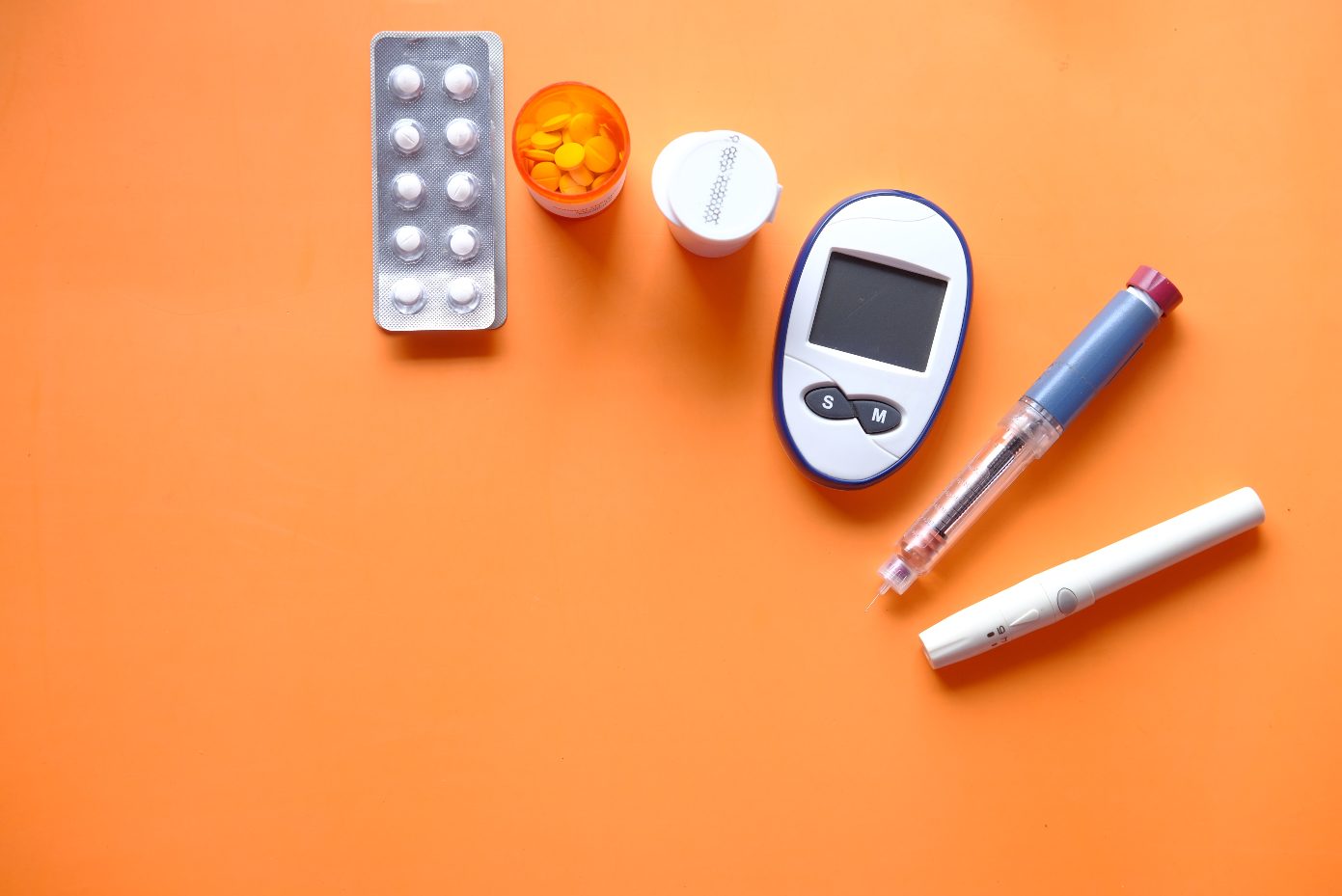
With the constant media flood of CoVID-related news, it’s incredibly hard (and stressful!), to sort through and understand the ever-evolving statistics, facts and guidelines about how to keep you and your loved ones healthy. It can be especially overwhelming for those who have been labelled at a higher risk for developing more severe infection compared to the general population, with one of these groups being people living with diabetes.
Odds are, you have some personal connection or experience with diabetes. Whether you have been diagnosed yourself, have a family member, a friend or coworker that has diabetes, it’s a disease that many people have some familiarity with, or have heard about – especially with the media buzz lately. It can be uniquely worrisome for any groups considered higher risk, and specifically looking at diabetes – what does this increase risk actually mean for this population? Are there ways to further protect themselves against contracting CoVID? Are they taking the necessary precautions to keep themselves and loved ones healthy and safe?
Having had type 1 diabetes for 16 years of my life, admittedly this has been weighing on my mind these past few weeks. I thought I’d take this opportunity to share the facts about CoVID and diabetes, sourced from the Juvenile Diabetes Research Foundation and the Canadian Diabetes Association, and explain what an increased-risk actually means for our diabetic community.
Q: Are diabetics at an increased risk of being infected with CoVID-19?
There is currently no evidence that diabetics who are considered to have well-managed glucose control, type 1 or type 2, are at an increased risk of being infected with CoVID-19 specifically. Reports implying that people with diabetes may be at higher risk of contracting CoVID, is thought to be partially explained by the fact that, in general, people with diabetes may have had more frequent interactions with other patients and healthcare providers during routine medical appointments. This would be especially critical in the early stages of the outbreak, when the importance of social distancing was not yet fully known.
Q: Do people with diabetes have an increased risk of severe symptoms if they get infected with CoVID-19?
Based off of data from past viral infections, if a person having either type of diabetes becomes infected with CoVID-19, the consequences might be more severe, especially those with other pre-existing health concerns or complications from diabetes, such as heart disease, kidney disease, or are over the age of 60. Many of the reports from China of patients who have suffered more serious complications, were those with type 2 diabetes, who are on average, a mainly older population (age >60 itself is associated with higher risk). An additional factor to think about with diabetes in general is blood sugar control. The JDRF has stated that people with type 1 diabetes, who have glucose values within target range, may not be at greater risk of developing serious symptoms. This emphasizes the need to keep your glucose values within your optimal range (whatever this target is for you as a type 1 or type 2 diabetic), for both overall diabetes management, and for helping to reduce the risk of serious illness if you do contract CoVID.
It is not yet known whether worse outcomes are seen due to diabetes itself, or whether worse outcomes are seen because diabetes often comes with other medical conditions that increase risk. As with any disease or illness, each individual is different, and we encourage you to consult your healthcare team to discuss your risks.
Q: Should I be taking extra precautions as a type 1 or 2 diabetic, beyond those recommended to the general population?
The best way to protect yourself and others from exposure is going to be the same for people living with diabetes and the general population – social distancing! Staying home and minimizing the need to go out is crucial for everyone to help lessen the impact of CoVID in Canada, and we should all consider: using virtual options for work or socializing (Zoom, FaceTime, Google Hangouts), using a delivery service for groceries and medications when possible, keeping 2 metres away from others if you must go out, and ensuring regular hand-washing with soap and water for a minimum of 20 seconds.
For anybody taking prescription medications right now, it is a good idea to be prepared with sufficient stock for a few weeks, and have as many refills as your prescribing doctor will allow. For people with diabetes, this can mean ensuring you have enough of your actual prescriptions (insulin, test strips, needle tips, pump and CGM supplies, lancets, oral medications), but also ensuring you’re equipped with the “extras” that often get overlooked – replacement batteries for your blood glucose monitor, having a back up blood glucose monitor in general, urinary ketone strips, hypo-glycemic kits (glucagon pen, glucose gel, glucose tablets etc).
Q: What if I do get sick?
In a person with diabetes, illnesses – even common ones, such as a cold or sore throat, can trigger an imbalance in blood glucose levels. Blood sugars often increase with an illness or infection, but may also decrease in certain instances where there is a loss of appetite, consistent nausea, vomiting or diarrhea. This is why it’s of critical importance to have a sick day plan in place and plenty of supplies on hand if you do fall ill.
Some key points to think about:
- Ensure you are checking your blood sugar more frequently (even if you’re not eating as usual)
- Adjust medication doses as necessary – you may need more insulin or oral medications to manage blood sugar during an illness
- Type 1 diabetics are at a higher risk of developing diabetic ketoacidosis (DKA) when ill, and use of urine testing strips can monitor for the presence of ketones in urine
- Have easily digestible foods and liquids on hand, with a mix of carbohydrate containing (juice, regular pop, jello, soup, apple sauce), and carbohydrate-free options (water, broth, sugar-free jello, popsicles) to ensure adequate hydration, especially if experiencing gastrointestinal symptoms.
Q: Should I avoid in-person medical visits?
For pre-existing clinic visits & doctors appointments, contact your healthcare team about options for video or phone visits, and delay routine lab work unless instructed by your healthcare practitioner.
Here’s a link to endocrinologist, Dr. Anne Peters, further outlining the above points: Dr. Anne Peters Video. Much of this information was found on the Juvenile Diabetes Research Foundation, which has been an amazing resource for up-to-date, factual information about how to safely navigate CoVID with diabetes. Currently, the JDRF is doubling donations to provide Canadians living with type 1 diabetes the resources they need to navigate the CoVID-19 pandemic.
Answering these commonly asked questions is meant to be informative and reassuring, rather than yet another source of worry. Arming ourselves with facts and ensuring we’re doing all the right things to protect ourselves and our loved ones, is our best tool to manage the very normal feelings of anxiety you may be experiencing. If you’re feeling overwhelmed with feelings of worry, reach out and contact your ND or other primary health care provider. Although we may be physically distant, we’re here for you and truly are stronger together!


